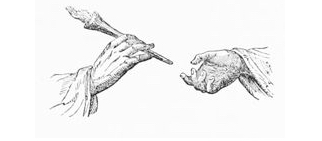NOVUM ORGANON
RENOVATUM.
By WILLIAM WHEWELL, D.D.,
MASTER OF TRINITY COLLEGE, CAMBRIDGE, AND
CORRESPONDING MEMBER OF THE INSTITUTE OF FRANCE.
BEING THE SECOND PART OF THE PHILOSOPHY
OF THE INDUCTIVE SCIENCES.
THE THIRD EDITION, WITH LARGE ADDITIONS.

ΛΑΜΠΑΔIΑ ΕΧΟΝΤΕΣ ΔIΑΔΩΣΟΥΣIΝ ΑΛΛΗΛΟIΣ
LONDON:
JOHN W. PARKER AND SON, WEST STRAND.
1858.
It is to our immortal countryman; Bacon, that we owe thebroad announcement of this grand and fertile principle; and thedevelopement of the idea, that the whole of natural philosophyconsists entirely of a series of inductive generalizations,commencing with the most circumstantially stated particulars, andcarried up to universal laws, or axioms, which comprehend intheir statements every subordinate degree of generality; and ofa corresponding series of inverted reasoning from generals toparticulars, by which these axioms are traced back into theirremotest consequences, and all particular propositions deducedfrom them; as well those by whose immediate considerations werose to their discovery, as those of which we had no previousknowledge.
Herschel,Discourse on Natural Philosophy, Art. 96.
CAMBRIDGE: PRINTED BY C. J. CLAY, M.A. AT THE UNIVERSITY PRESS.
PREFACE.
Even if Bacon’s Novum Organon had possessed thecharacter to which it aspired as completely as waspossible in its own day, it would at present need renovation:and even if no such book had ever been written, it would bea worthy undertaking to determinethe machinery, intellectual, social and material, bywhich human knowledge can best be augmented.Bacon could only divine how sciences might be constructed;we can trace, in their history, how theirconstruction has taken place. However sagacious werehis conjectures, the facts which have really occurredmust give additional instruction: however large werehis anticipations, the actual progress of science sincehis time has illustrated them in all their extent. Andas to the structure and operation of the Organ bywhich truth is to be collected from nature,—that is,the Methods by which science is to be promoted—weknow that, though Bacon’s general maxims are sagaciousand animating, his particular precepts failed inhis hands, and are now practically useless. This,perhaps, was not wonderful, seeing that they were, asI have said, mainly derived from conjectures respectingknowledge and the progress of knowledge; butat ivthe present day, when, in several provinces of knowledge,we have a large actual progress of solid truthto look back upon, we may make the like attemptwith the prospect of better success, at least on thatground. It may be a task, not hopeless, to extractfrom the past progress of science the elements of aneffectual and substantial method of Scientific Discovery.The advances which have, during the last threecenturies, been made in the physical sciences;—inAstronomy, in Physics, in Chemistry, in Natural History,in Physiology;—these are allowed by all to bereal, to be great, to be strik